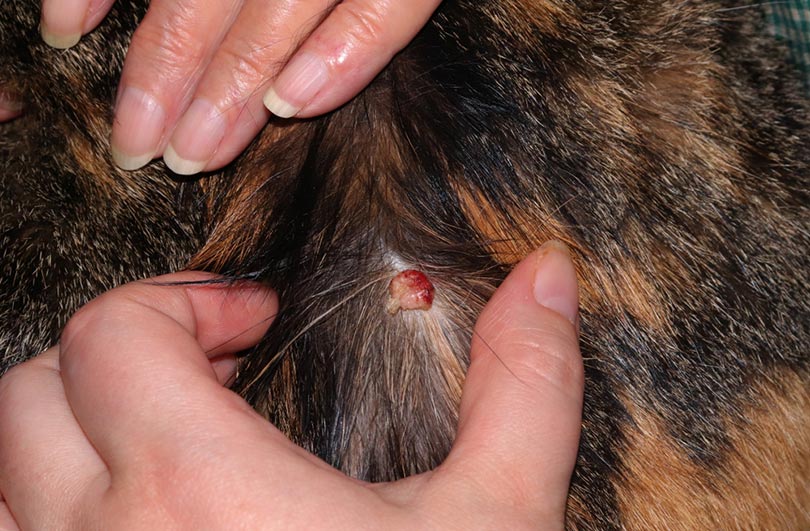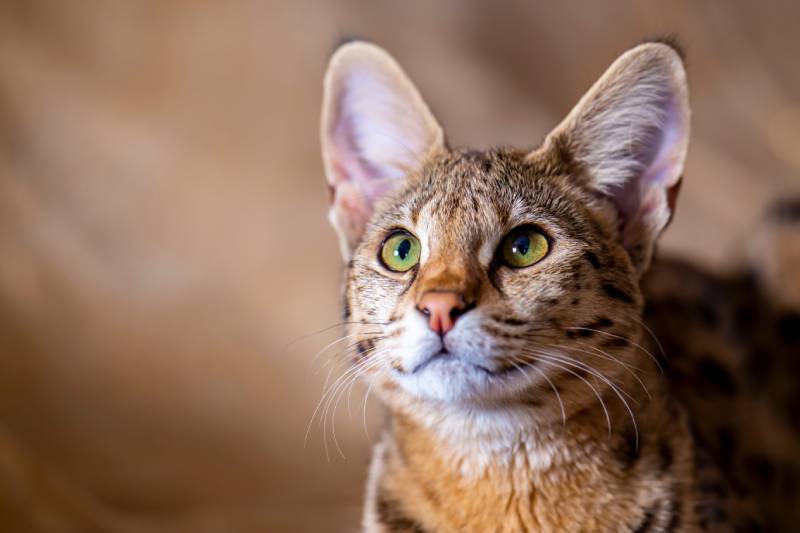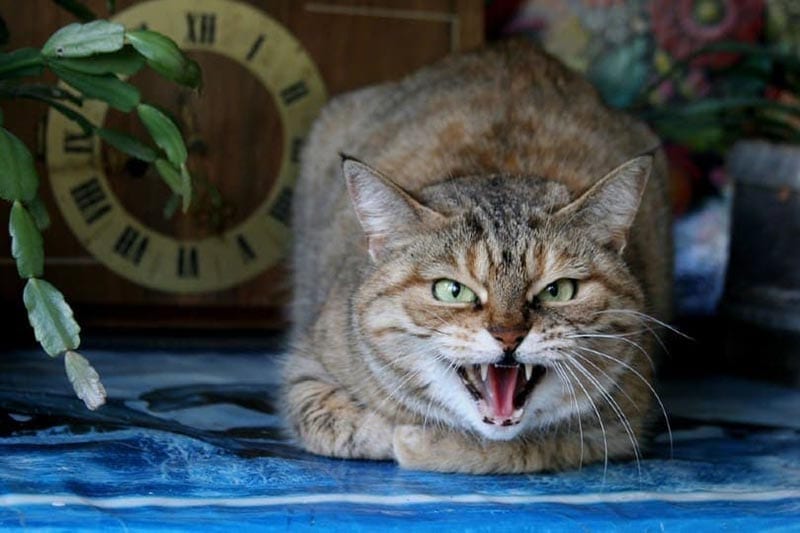Is a Fake Christmas Tree Safe for a Cat? Are They Worse Than Real Trees?
Updated on
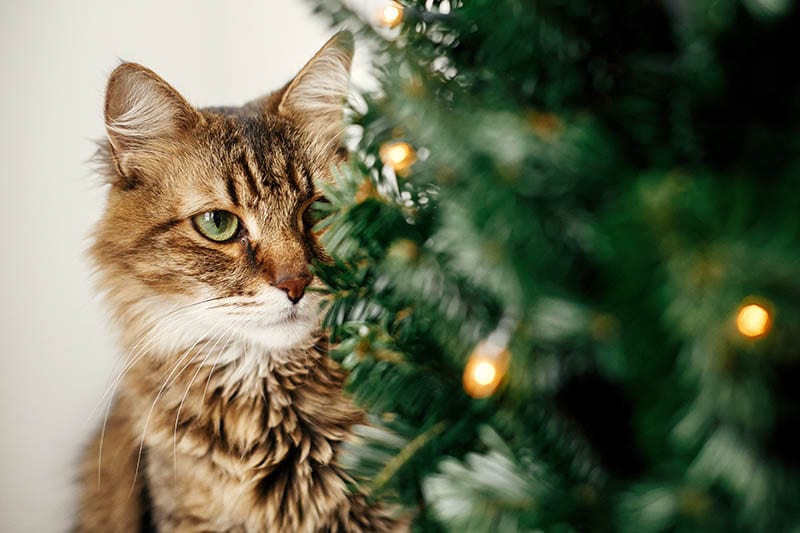
As hard as it might be to believe, Christmas is right around the corner, and with the holiday season comes a handful of dangers that pet owners should know about. Christmas trees are one of the most beautiful holiday traditions for many families, but they can pose risks for your cats.
Real trees can be mildly toxic due to their needles and sap. Even the water your tree sits in to ensure it lasts throughout the holidays can be dangerous if your cat drinks it. Artificial trees have advantages over real ones, but are they safe for cats? They certainly can be! Keep reading to learn more.
Are Real Trees Dangerous in Pet-Friendly Households?
Real tree needles are sharp and can cause gastrointestinal damage, making your cat sick. The oils and sap from real trees can be toxic, and getting sap out of your pet’s fur is never fun.
The water your tree sits in can become contaminated by pesticides or fire retardants sprayed onto it before you bring it home. Sitting water can also cause mold and bacteria growth, which can be dangerous for your cat to drink.
Are Fake Trees Safe for Cats?
Fake trees are a good option for pet owners as they don’t have the same health hazards as real trees. Since they’re not living, you don’t need to worry about keeping a bowl of bacteria-ridden water in your home, and the “needles” aren’t sharp like real tree needles and won’t perforate your cat’s intestines or cut their mouths.
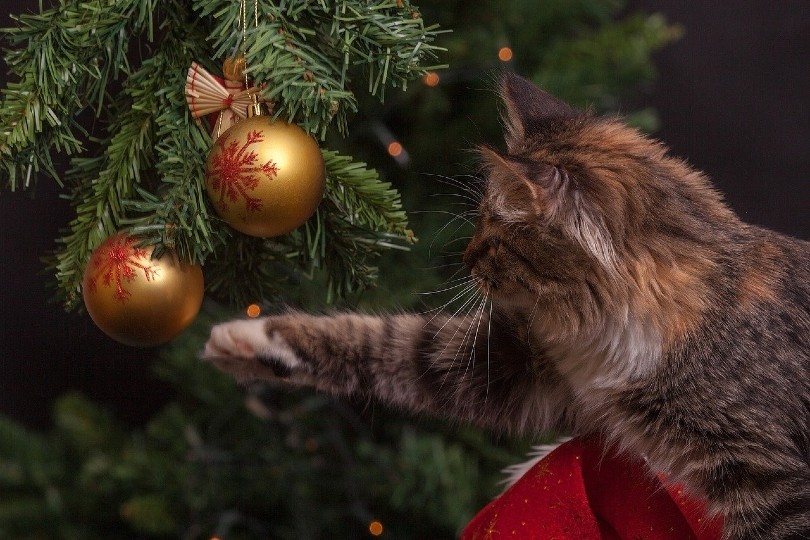
Are There Dangers With Fake Trees?
Though they may be a better alternative, fake trees can still pose health risks for your curious kitty. Most artificial trees are made with a non-toxic plastic material, so they shouldn’t present much harm if ingested.
However, if your cat chews on the fake needles aggressively enough, they can break off and be swallowed. This could lead to an upset tummy, vomiting, and obstructions if enough of the tree were eaten. There is the risk with both types of trees of cats getting tangled in decorations or pulling the tree over while climbing it.
How Can I Find the Perfect Fake Tree?
So, you’ve decided to go the artificial tree route this holiday season for your pet’s sake. Now you’re tasked with finding the perfect tree to keep your home sparkling and festive while ensuring your cat is safe. The first thing you should consider is the height of your tree.
As a cat owner, you know kitties love to be up high, and nothing is more enticing than a glittering seven-foot-tall Christmas tree adorned with baubles galore. As tempting as it may be to buy the tallest tree you can find, we recommend choosing a shorter option. If your cat were to climb into a shorter tree and knock it over, it’s much less of a hazard than a sky-high tree, which can hurt them.
If you know your cat is a chewer, stay far away from artificial trees with flocking on them. Flocking is a white material that mimics the appearance of snow, and though it is beautiful, it can be mildly toxic. You can buy a pre-lit tree with lights already wrapped in the branches. These light strands are usually buried deep in the tree and will be much less tempting to gnaw on than light strands you wrap around the tree yourself.
Final Thoughts
There’s no need to tone down your festive spirit this holiday season just because you have pets. You can still have a beautifully decorated home with a sparkling Christmas tree when you have cats. Check out our blog on how to cat-proof your tree to ensure your tree stays standing and lasts throughout the season.
Featured Image Credit: Bogdan Sonjachnyj, Shutterstock


